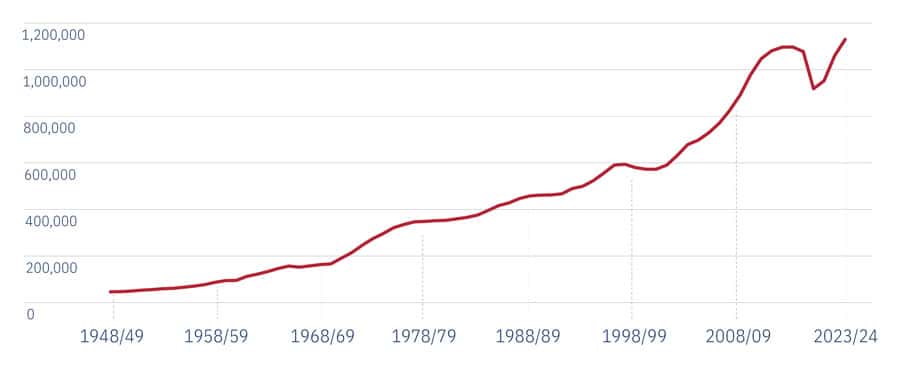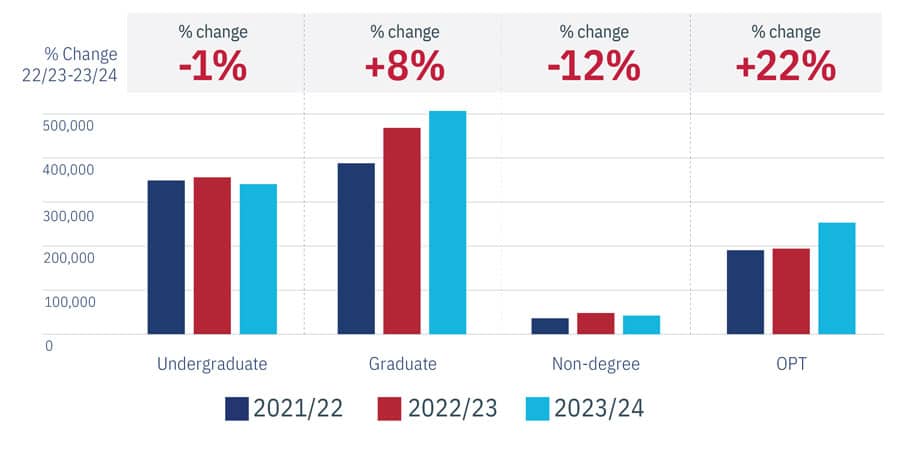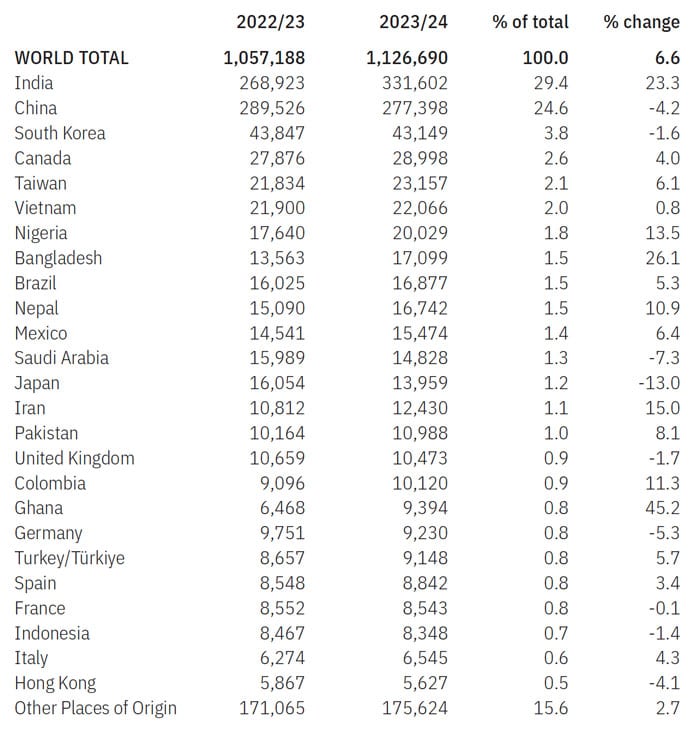The 2024 Open Doors Report on International Educational Exchange reveals that 1,126,690 international students were enrolled at US colleges and universities (or engaged in Optional Practical Training) in the 2023/24 academic year. This represents a new all-time high for foreign enrolment in the US, and a 7% increase over the previous academic year.
“Students are really voting with their feet,” said Institute of International Education CEO Allan Goodman. “They are seeing where [enrolment] caps and restrictions are and they are moving to destinations without caps. This puts the US in a very advantageous position. International students enrich our campuses, foster cultural exchange, and contribute significantly to our economy, and we remain dedicated to supporting these bright minds and ensuring that the US continues to be a premier destination for global education.”
In a further indication of a continuing growth trend in the US, nearly 700 US institutions responded to IIE’s fall 2024 snapshot survey and reported a 3% increase in international enrolment as of the start of the 2024/25 academic year. Snapshot survey respondents also reported that undergraduate enrolments increased by 6%, while graduate enrolments decreased by a modest 2%. Optional Practical Training (OPT) is also up by 12% this fall.

As always, that total figure for 2023/24 comes with a note of caution in that students in post-study work placements via OPT are still counted as international students in the Open Doors total. In 2023/24, those broad categories breads down into 883,908 students enrolled in academic programmes and another 242,728 in OPT placements.
Indeed, the overall growth reported for 2023/24 is largely accounted for by growth in OPT participation as well as an increase in graduate enrolments, as reflected in the figure below.

Record-breaking economic impact
A complementary analysis from NAFSA finds that international students at US colleges and universities contributed US$43.8 billion and supported 378,175 jobs in 2023/24. As those totals indicate, one American job is created or supported for every three foreign students enrolled in the US.
“International students’ contributions to the US are significant and multi-faceted, and this year’s record-breaking economic total is the latest proof of that,” said Fanta Aw, NAFSA executive director and CEO. “Yet we cannot be complacent. The annual increase in economic activity is about half of what it was the year before, signaling that the pent-up demand for a US education following the pandemic is subsiding. Meanwhile, competition for the world’s best and brightest is increasing. The United States must adopt more proactive policies to attract and retain global talent. We cannot afford to lose international students’ meaningful positive impact on American students’ global competence, our economies, and our communities, particularly in the areas of STEM-related research and innovation.”
India rising
India was the top-sending country for the US in 2023/24, taking up that position for the first time since 2009. There were 331,602 Indian students in the US in 2023/24 – a 23% increase from the previous year.
IIE adds that, “China was the second leading place of origin, despite a -4% decline to 277,398 students. It remained the top-sending country for undergraduates and non-degree students, sending 87,551 and 5,517, respectively. Chinese students pursuing OPT increased by 12% to 61,552. India and China together made up over half of all international students in the United States.”
More broadly, IIE reports that 16 of the top 25 sending markets for the US grew in the last academic year, with 8 of those reaching all-time highs in terms of total student numbers (Bangladesh, Colombia, Ghana, India, Italy, Nepal, Pakistan, and Spain).

Reflecting on this year’s growth patterns, Mirka Martel, IIE’s Head of Research, Evaluation and Learning, said, “Multiple factors contribute to the change in international student numbers, and many of these factors indicate that international enrolments, especially in emerging market economies, will continue to increase. Most of these countries, such as India, Bangladesh, or Nigeria, have expanding tertiary-age populations and fewer options for higher education. As a result, growing numbers of students from these countries are looking to the US to study.”
She added that, “It is also important to note that US institutions understand how important international students are to their campuses. According to the Fall 2024 Snapshot, 85% of institutions spent the same or more financial resources to recruit international students as the previous year. We anticipate the growth in international student numbers to continue in the 2024/25 academic year.”
For additional background, please see:
Source
